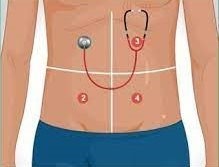The nurse is admitting a client of the Muslim faith during the holy month of Ramadan. The client tells the nurse that he must fast during this time. Which response by the nurse is the most appropriate?
Fasting is harmful to your body.
You must have food during times of illness.
I will let your healthcare provider know that you need to be discharged.
What can we do to accommodate your needs during your stay here?
The Correct Answer is D
This response demonstrates respect for the client's religious beliefs and a willingness to work with the client to meet their needs. It also opens up a dialogue between the nurse and the client to develop a plan of care that is consistent with the client's beliefs and values.
Option a, "Fasting is harmful to your body," is not an appropriate response as it does not respect the client's religious beliefs and may be perceived as insensitive or disrespectful.
Option b, "You must have food during times of illness," may be accurate in some situations, but it is not relevant to the client's request to fast during Ramadan.
Option c, "I will let your healthcare provider know that you need to be discharged," is not an appropriate response as it does not address the client's request to fast during Ramadan and may be perceived as dismissive or unhelpful.
Nursing Test Bank
Naxlex Comprehensive Predictor Exams
Related Questions
Correct Answer is B
Explanation
The nurse is assessing the 6 stages of the cardinal gaze to evaluate the function of the cranial nerves III, IV, and VI for ocular motor movements, which control eye movement and positioning.
Cranial nerve III controls the superior rectus, inferior rectus, and medial rectus muscles, which move the eye up, down, and inward, respectively. Cranial nerve IV controls the superior oblique muscle, which moves the eye downward and laterally. Cranial nerve VI controls the lateral rectus muscle, which moves the eye outward.
Therefore, the nurse will observe the patient's ability to move their eyes smoothly in each of the six cardinal positions of gaze and note any abnormalities that may indicate dysfunction of these cranial nerves. This test is used to diagnose conditions such as strabismus, nystagmus, and palsy of the ocular motor nerves.
Cranial nerve II, on the other hand, is responsible for visual acuity, not eye movement, and is tested separately using a visual acuity chart or other vision tests.

Correct Answer is B
Explanation
The appropriate next step would be to auscultate for another 4 minutes. The absence of bowel sounds for one minute does not necessarily indicate a surgical emergency, as bowel sounds may be affected by various factors such as the client's diet, medications, and level of activity. Listening for another minute may not provide enough information to make an accurate assessment, so it is recommended to listen for a longer period. If after the additional 4 minutes, there are still no bowel sounds heard, the nurse should notify the physician to further evaluate the client. Listening posteriorly may also provide additional information, but it should be done after the nurse has completed listening to all four quadrants of the abdomen anteriorly.

Whether you are a student looking to ace your exams or a practicing nurse seeking to enhance your expertise , our nursing education contents will empower you with the confidence and competence to make a difference in the lives of patients and become a respected leader in the healthcare field.
Visit Naxlex, invest in your future and unlock endless possibilities with our unparalleled nursing education contents today
Report Wrong Answer on the Current Question
Do you disagree with the answer? If yes, what is your expected answer? Explain.
Kindly be descriptive with the issue you are facing.
